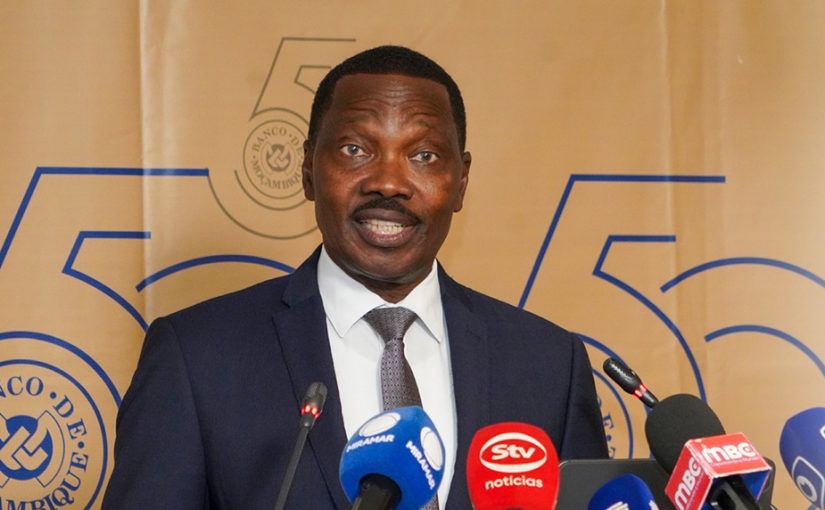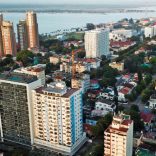Mozambique adds over €12 million to public debt in Q2 2025"
Mozambique’s debt ‘cannot grow’, warns central bank

Rogério Zandamela emphasised on Monday that domestic debt is already putting pressure on the market and requires revenue, expenditure, and structural adjustment measures. [Photo: Banco de Moçambique']
Bank of Mozambique Governor Rogério Zandamela warned on Monday that the country’s public debt cannot continue to grow, and said he foresees the government taking measures to contain it.
“It cannot grow. I know, I am certain, that the government is doing everything possible to contain this debt at reasonable levels so that it does not create problems for the economy. Because if it continues to grow, to the point of reaching worrying levels of unsustainability, it could cause problems,” Zandamela warned on Monday.
Responding to journalists after the Monetary Policy Committee (CPMO) meeting, which takes place every two months, the central bank governor emphasised the importance of containing the impact of debt growth — particularly the growth of domestic debt.
“Yes, it has an impact on economic growth; it cannot grow indefinitely. There comes a time when precautions must be taken through appropriate measures: revenue measures, expenditure measures, and all kinds of adjustments necessary to reduce, contain or mitigate the growth of this debt,” Zandamela added.
The CPMO meeting, like previous ones, concluded that “pressure on domestic public debt continues to worsen,” acknowledging an “impact on the normal functioning of the State bond market.”
“Domestic debt, excluding loan and lease agreements and outstanding liabilities, stands at 454.4 billion meticais (€6.061 billion), representing an increase of 38.8 billion meticais (€517.5 million) compared to December 2024,” the governor stated, referring to the conclusions of the CPMO meeting.
According to earlier data, Mozambique’s public debt reached a record high of 1.072 trillion meticais (€14.3 billion) on 30 June.
The Mozambican government estimates a fiscal deficit above 6% of Gross Domestic Product (GDP) for 2026, prioritising “wage bill control” and “stabilising the State’s debt burden.”
“Ensuring a balance between the importance of consolidating public accounts in order to stabilise debt indicators, freeing up budgetary space to meet productive investment needs. However, this consolidation effort must not neglect the need to create conditions for the allocation of resources for investment, to allow the economy to continue growing,” the Secretary of State for Treasury and Budget said on 26 September in Maputo.
Amílcar Tivane was presenting to partners the outlook for the proposed Economic and Social Plan and State Budget (PESOE) for 2026 at the Central Development Observatory, acknowledging that international shocks and geopolitics were affecting Mozambique’s forecasts.
“To meet these challenges, we will continue working to rationalise expenditures, and two cornerstones of this process are wage bill control and debt stabilisation,” Tivane explained, also acknowledging that expenditure represents a “critical area” of next year’s PESOE.
“For 2026, we have planned a budget with an expenditure level of around 32% of GDP, while State revenues will be around 28% of GDP, and the fiscal deficit around 6% of GDP,” the Secretary of State said, assuring that the difference will be financed through donations and domestic and foreign debt, but with “greater restraint to minimise risk.”
For this year, the government had previously forecast a lower deficit of 5.6% of GDP.












Leave a Reply
Be the First to Comment!
You must be logged in to post a comment.
You must be logged in to post a comment.